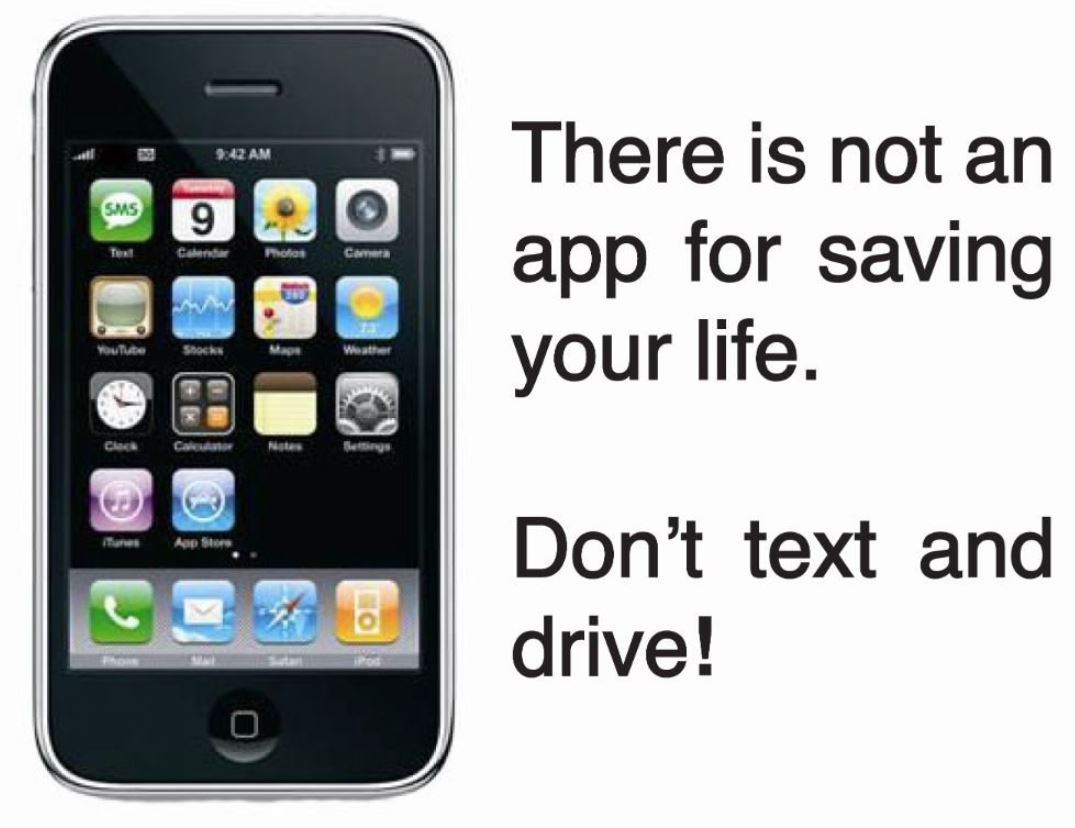Do NOT Text and Drive
If you’re texting, you’re not driving!
The growing popularity of text messaging — especially by young adults — has had a really negative impact on vehicular safety, as more and more people text while behind the wheel. Driving with your pinkies while hitting keys with your thumbs, or texting with one hand while steering with the other, is literally an accident waiting to happen.
Take out your wireless device. Read the last text message you received out loud. Would reading or responding to that text message from behind the wheel of a moving vehicle be worth the risk of getting into a car accident or worse? Chances are, the text message can wait.
In today’s 24/7/365 world, staying connected is no longer an option. It’s a necessity. With a tenfold increase in text messaging over the last few years according to CTIA — The Wireless Association – there is no question that texting is increasingly becoming the way many communicate today. And, for many, the allure to quickly read and respond — even from behind the wheel of a moving vehicle — can be tempting. But texting and driving is dangerous.
How can parents make sure kids don’t text and drive?
To help keep your teens safe while they are in the car, Students Against Destructive Decisions (SADD) recommends parents follow these guidelines for teaching their kids about driving distractions:
– Know and enforce your state’s Graduated Driver License laws and restrictions, including unsupervised driving, time of day and passengers in the car.
– Sign a teen driving contract.
– Set family driving rules with clear consequences for breaking the rules. Rules such as: (1) No alcohol or drug use; (2) No cell phone use, including text messaging; (3) No driving after 10 pm; (4) Keep two hands on the wheel–no eating, changing music, handling iPads or other activities while driving; and (5) Limit or restrict friends in the car without an adult.
Follow your own family’s rules. Your teen will follow your driving example, so be sure you are keeping your own rules.
How to Avoid Driving Distractions:
Pull off the road. Do not drive while calling or texting.
Use speed dialing or voice-activated dialing if you have to make a call while driving.
Let your voicemail take the call. You can call back later when you are not driving.
Know when to stop talking. If the conversation is long, emotional or stressful, continue it when you are not driving.
Do not take notes while driving. If you don’t want to forget a note, use a voice recorder or pull off the road.
Do not eat or drink while driving.
Groom yourself at home, not in the vehicle
Don’t Text While Driving Documentary and information HERE
Through conversation, education, and communication, we hope your teens will get the message that no text message is worth dying for.
The message is simple, yet vital: When it comes to texting and driving, it can wait.
*Portions taken from AT&T.com.*

